
Sponsored Links
Seasonal allergies are no picnic, even though they tend to be worse during picnic season. Allergies to botanical elements plague up to thirty percent of adults and forty percent of kids, causing itchy eyes, sore throat, sneezing, and coughing. As different plants bloom and fade throughout the growing season, folks may find themselves feeling better or getting hit all over again with a new kind of allergic reaction.
Your doctor can test for the types of seasonal allergies likely to bother you most, but may not explain how certain foods can actually increase the uncomfortable effects of specific allergens. Following is a list of foods and drinks that are best to avoid during spring, summer, and fall if you are one of the unlucky sufferers of seasonal allergies.
The culprit: histamines
Histamine is an essential neuro transmitter, and as such, we need it in our diet. Many foods are high in histamine, including nuts, cheese, alcohol, chocolate, tomatoes, shellfish, and smoked meats. In fact, if you tried to cut histamine out of your diet entirely, you would be very hungry. However, for people with seasonal allergies, too much histamine can worsen symptoms.
When your traditional allergies act up, it triggers the body to produce histamine, adding to what you already get from food and tipping over the “too much” mark. Cutting back can help to control the severity of your sneezing attacks, but it’s not healthy to try and avoid histamine all together. And remember that your allergies are a combination of genetics, lifestyle factors, diet, and the health of the biome – only some of that can be controlled by you, the rest just has to be managed.
Following are the top foods you may want to ease up on, or skip out on, when your seasonal allergies are at their height.
Parsley
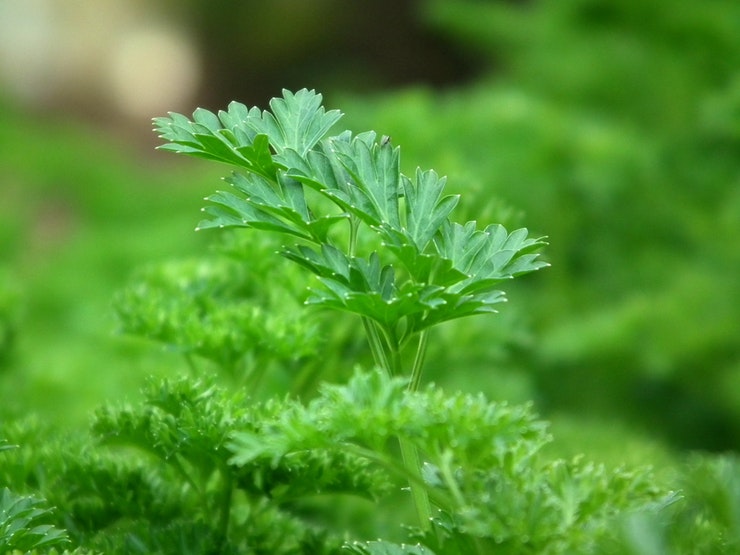
Parsley seems to be a controversial garnish, with some sources reporting that people who suffer allergies to tree pollen should avoid it as a known cross-reactor that can exacerbate your issues. However, others swear by parsley for its Quecetin content, which offers histamine-blocking effects. Bottom line, this may be an easy thing to avoid if you are specifically troubled by tree pollen (especially birch), or you’re not sure what triggers your allergies. Otherwise, it is a healthy addition to your diet.
Tomatoes and other fresh veggies
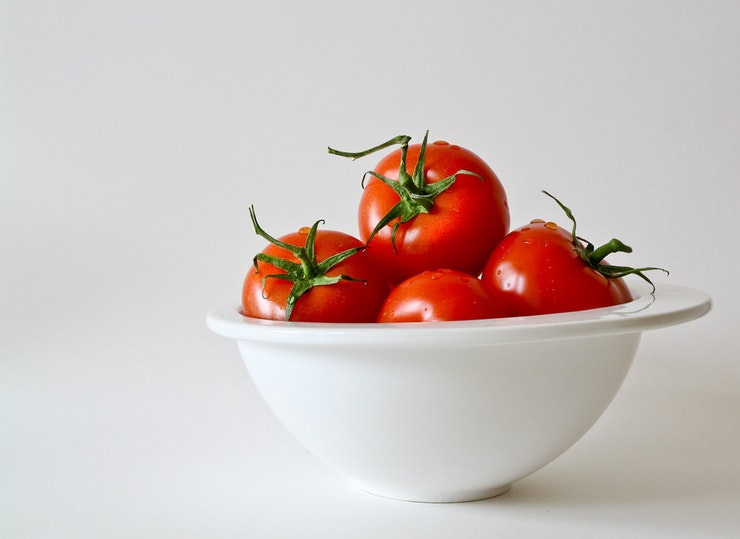
Many of the freshest and healthiest foods around are also naturally high in histamine. The list includes a lot of good ones – tomato, avocado, mushroom, eggplant, pumpkin, and spinach. Histamine from these sources seems to especially hit people who are allergic to grass pollens, so you might be in the clear if this isn’t your sensitivity. It’s worth doing a little test if you’re not sure but you’re really suffering from allergies.
Sponsored Links
Blue Cheese
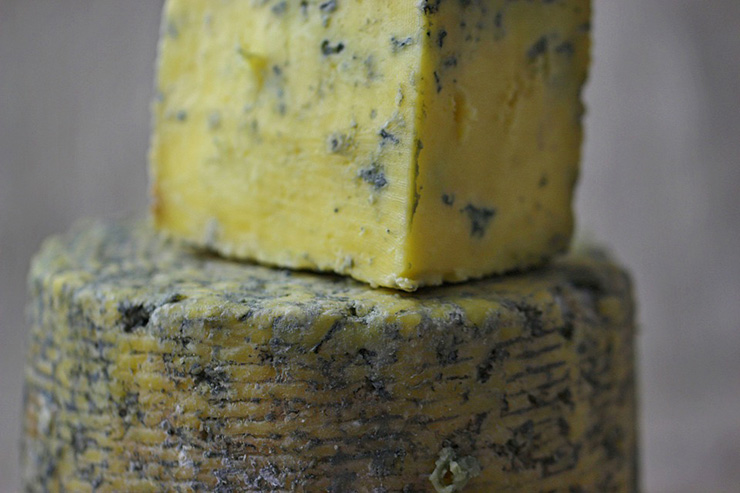
maxpixel.net
Blue cheese is a part of a group of foods that are aged, fermented, or cultured and contain high levels of histamine. More tends to be produced the longer a food ages, so most blue and/or mature cheeses are potential allergy triggers. Other things to avoid include smoked meats, sauerkraut, and any kind of alcohol. Sufferers could find that these foods make symptoms like itchy and watery eyes, sneezing, and congestion much worse.
Almonds & other nuts
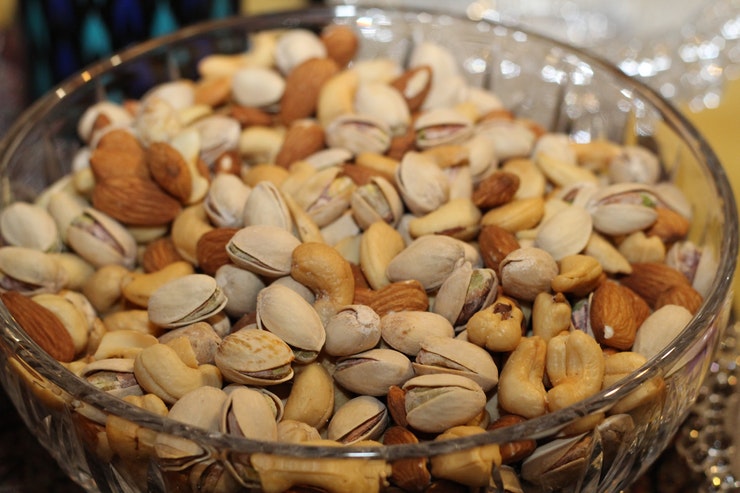
If tree pollen gives you trouble, there’s a good chance that tree nuts will also aggravate your allergies. Almonds are especially prone to causing a reaction in people who are sensitive to trees. The other most common allergy-inflaming nuts include walnuts, cashews, and pistachios. If you have experimented and found a nut you want to avoid in the future, remember to read food labels. Many nuts are used in flour or “milk” too.
Wine

Wine is made with fermented grapes, so it joins that category of aged products that are high in histamines. Actually, all alcohol is fermented and can aggravate your seasonal allergies. But wine is also high in sulfites, which is known to bring on asthma and other allergy symptoms. A 2005 study out of Sweden found that red and white wines were the most common triggers in people who have seasonal allergies, and for an unknown reason, women were twice as likely to be affected as men.
Banana
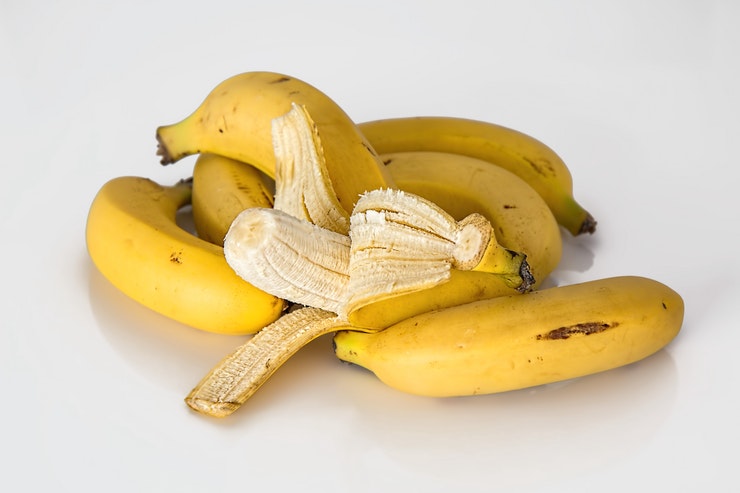
If ragweed is the allergen that plagues you, it may be smart to avoid bananas. People who are allergic to ragweed and consume raw bananas may notice swelling of the lips or tongue, plus irritation in the mouth and throat. The reactions are typically confined to raw bananas, so you will likely still be fine with banana cream pie. Other raw foods that could be troublesome are watermelon, cantaloupe, cucumber, honeydew, and raw zucchini.
Celery
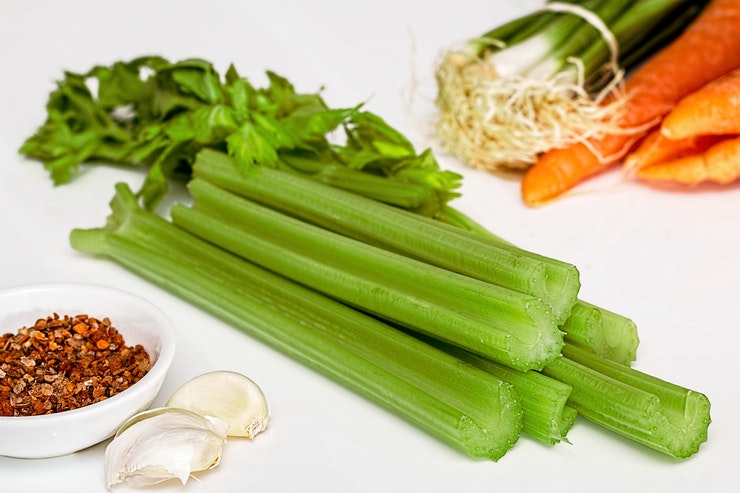
Celery forms part of the base for a great many recipes, so it can be hard to avoid. But it is prone to spiking allergy symptoms in people with tree pollen and weed pollen sensitivity. Celery stems are the most common culprit, but celery oil and celery root are also potential triggers. The reaction may be confined to the mouth and throat, or cause redness and itching of the skin. If celery bothers your allergies, get comfortable reading all package labels and asking a lot of questions about the menu at restaurants.
Chamomile Tea

Sponsored Links
Another trigger for ragweed allergy sufferers is chamomile tea. It’s used a lot during flu season to soothe the throat, but it may not be the best for people bothered by ragweed, especially during allergy season. Unfortunately, another food that contains troubling pollen from the Compositae family is honey, so this classic remedy for allergy-like symptoms is a no-go for people with real allergies.
Seasonal allergies are the pits, and it’s not possible to completely eliminate them by changing your diet. However, you may be suffering more than you have to. Reducing intake of foods high in histamine can help to minimize symptoms. Done in conjunction with anti-histamine medications recommended by your doctor, you may be able to enjoy some time in the good old outdoors.
